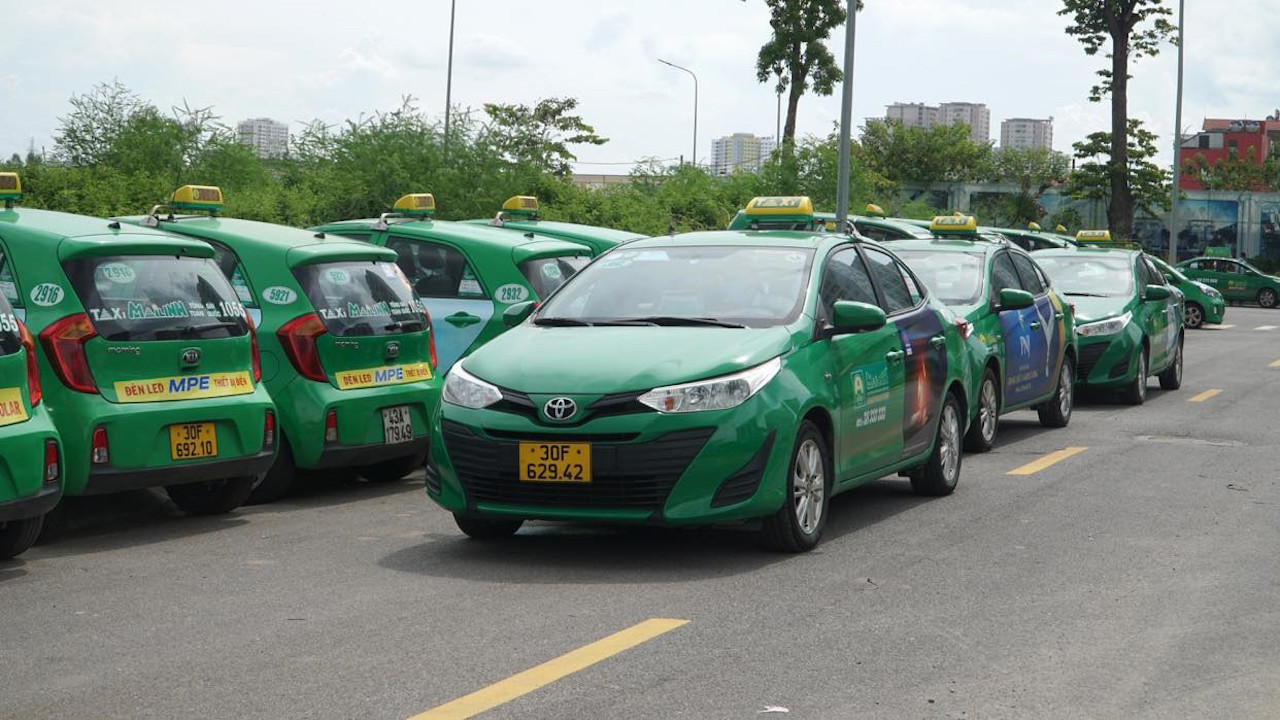
Starting January 1, 2025, passengers will be allowed to negotiate taxi fares directly with drivers. However, businesses must issue invoices at the end of each trip.
This update is part of Decree No. 158/2024/ND-CP, recently issued by the government, which regulates road transport operations and sets detailed guidelines for taxi services.
Detailed regulations for taxis
The decree outlines requirements for vehicles used in passenger transport by taxis, covering fare calculation methods. These include traditional meters, software-based fare calculations, and agreed fares between passengers and transport companies.
If a taxi does not use the standard "TAXI" roof sign, it must display a fixed reflective label inside the vehicle's windshield and rear window. This label, bearing the term "TAXI," must be at least 6x20 cm in size. If an electronic display is used, it must remain illuminated and comply with the same size requirements.
Vehicles opting for the roof sign with "TAXI" (minimum dimensions of 12x30 cm) are exempt from the requirement to display reflective labels.
Mandatory invoicing
The decree mandates that taxis install officially verified taximeters, accompanied by devices capable of printing invoices or receipts connected to the meter. These must be fixed in a position visible to passengers. At the end of the journey, drivers are required to issue electronic invoices.
For taxis using software-based fare systems, the vehicle must be equipped with devices that allow passengers to book, cancel, and calculate fares through an electronic platform. These systems must display details such as the company's name, driver information, vehicle license plate, trip distance, and total fare.
Negotiated fares
A notable change introduced by the decree is the option for passengers to agree on fares with taxi operators based on published rate charts inside the vehicle or the company’s software.
At the conclusion of trips calculated via software, the business must issue an electronic invoice to the passenger and send the invoice details to the tax authorities.
According to the Directorate for Roads of Vietnam, this regulation addresses the challenges faced by traditional taxi services under stricter operating conditions compared to contract-based ride services. It is expected to allow more flexible pricing, aligning with market demands.
Concerns over potential revenue loss and tax evasion due to fare negotiations were addressed by the Directorate. Businesses are now required to use electronic invoices, ensuring compliance with tax laws.
“Although the fare can be negotiated, businesses must still issue an electronic invoice and report it to tax authorities. Regardless of the pricing method, the invoice must be provided at the end of the trip,” a representative emphasized.
Failure to issue invoices is strictly prohibited, and compliance will be enforced through inspections and penalties.
N. Huyen